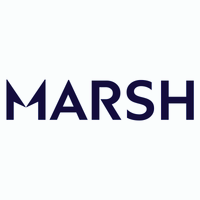REBA Inside Track: HR must transform for business transformation to succeed
Since early 2021, REBA’s Transforming Engagement series, in partnership with Mercer Marsh Benefits, has been tracking how business and societal change is affecting the high-level decisions and strategic shifts that chief human resources officers (CHROs) and their HR and reward teams make.
Looking back to our first and third research reports in particular (both published in 2021), our insight data indicated that huge business transformation was under way, with many CEOs expecting to launch or redevelop swathes of products and services. This was being driven primarily by technological and digital developments, as well as new ways of working. The research also identified the increasing influence of environmental, social and governance (ESG) and broader sustainability objectives and targets on businesses.
Our latest report, Business transformation needs HR transformation, shows that business transformation has now reached HR departments. To date, many CHROs have implemented minor changes (43% of respondents), with only one in five (18%) making significant reforms and just one in 20 (5%) having undergone complete HR transformation. However, this focus on change is about to accelerate rapidly. A fifth of CHROs (18%) are expected to implement complete HR transformation over the coming two years, while nearly half (46%) plan to make significant reforms. Just a quarter (25%) plan minor changes.
This level of HR transformation is enormously significant and will affect every aspect of HR practice; from new talent and skills development, to realigning reward and benefits with any new strategies and business purpose.
A key problem for HR to solve will be the mismatch between an organisation’s stated purpose and what employees experience. Three-quarters (78%) of businesses say that their corporate purpose has a positive effect on attracting talent. However, this slips to under two-thirds (61%) during the talent acquisition stage of the process, and down to below half (44%) when it comes to talent retention. There is work to be done to ensure that employee experiences catch up with their organisation’s outward messaging.
What is clear from the Business transformation needs HR transformation report is that if CEOs want to achieve their business transformation goals, they will need highly strategic CHROs leading teams able to adapt and align to the evolving purpose of their businesses. Well-thought-through and future-facing talent strategies and skills and behaviours development will make the crucial difference between sustainable business success and failure.
Just as new product development requires investment, so, too, will people development – and both are needed to achieve profit. This applies equally to CHROs and their teams: do they have the level of skills needed to play a key role in significant business transformation? Although the new models of HR transformation linked to evolving business purposes and talent and skills needs are as yet unclear, it would be advisable to review existing team skills and structures to ensure that they have the flexibility to adapt.
Supplied by REBA Associate Member, Mercer Marsh Benefits
At Mercer, we believe in building brighter futures.








